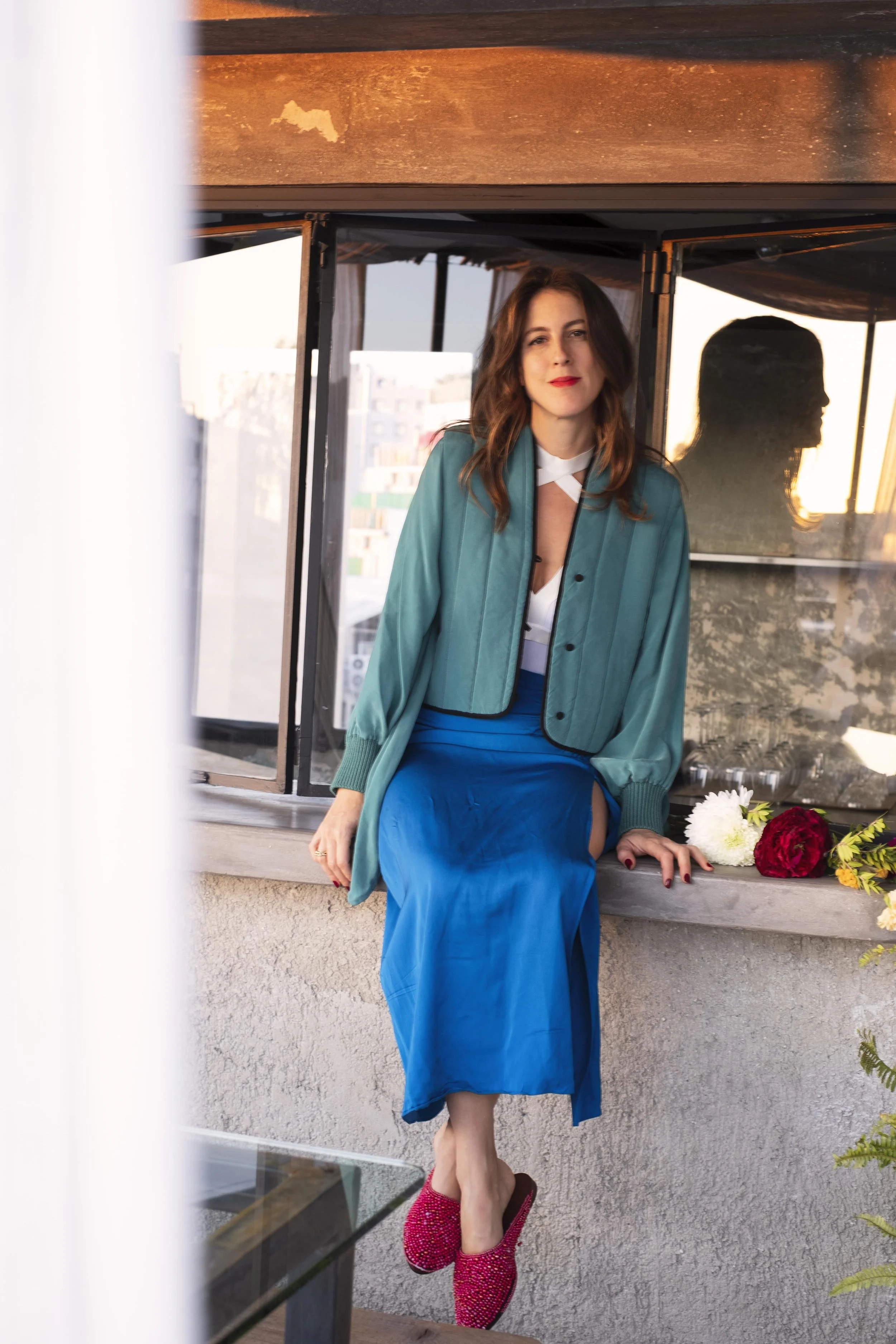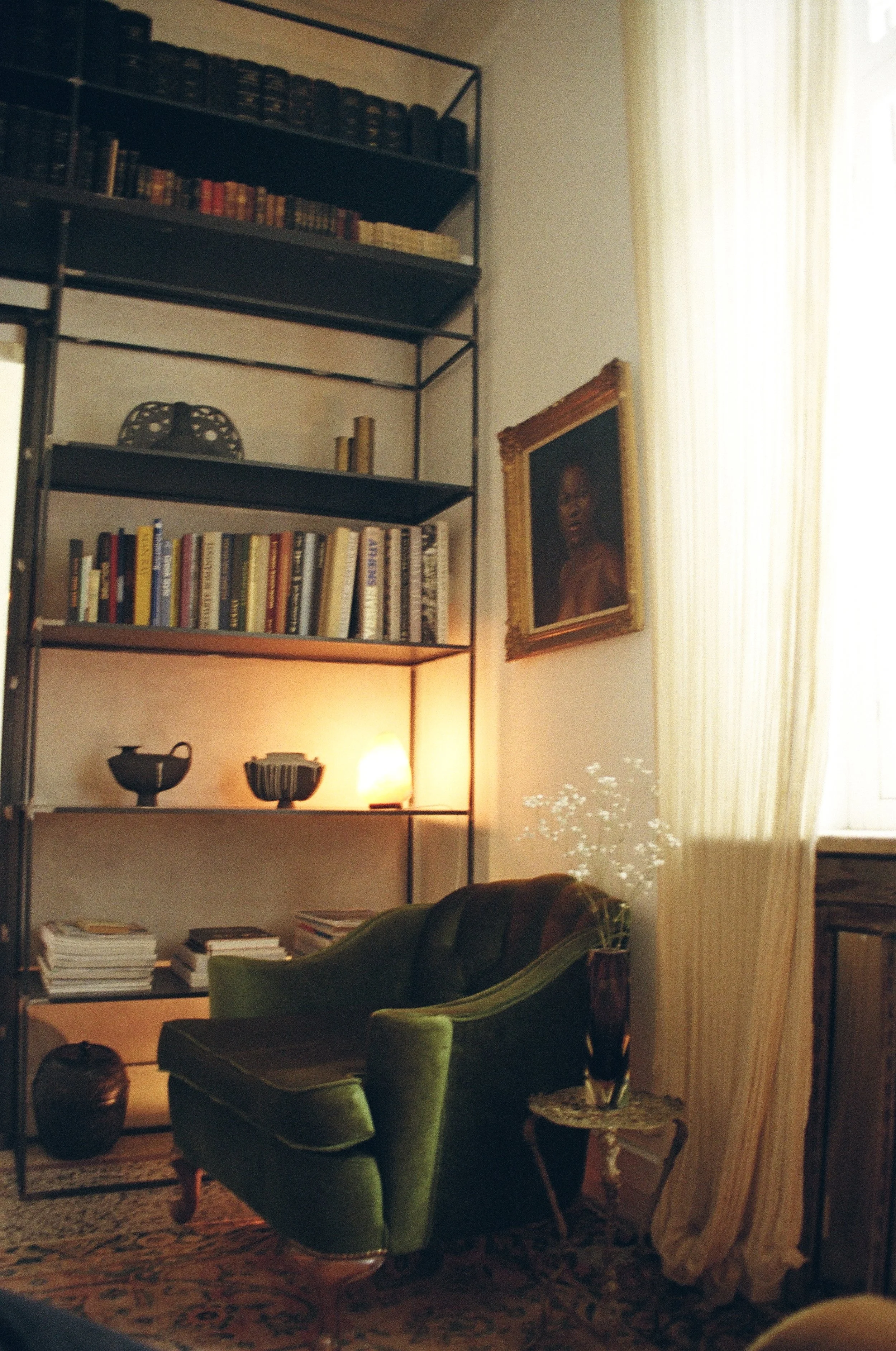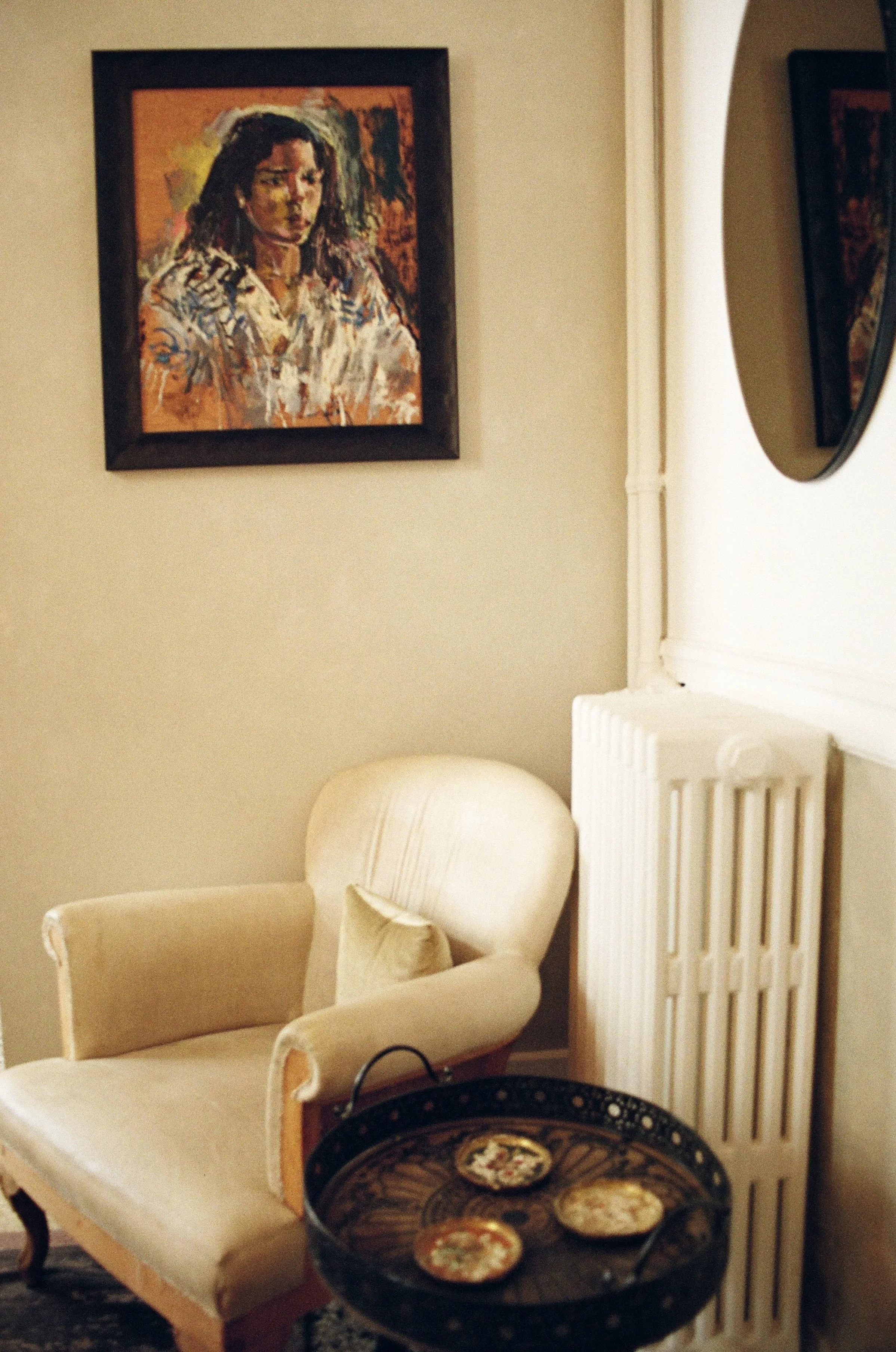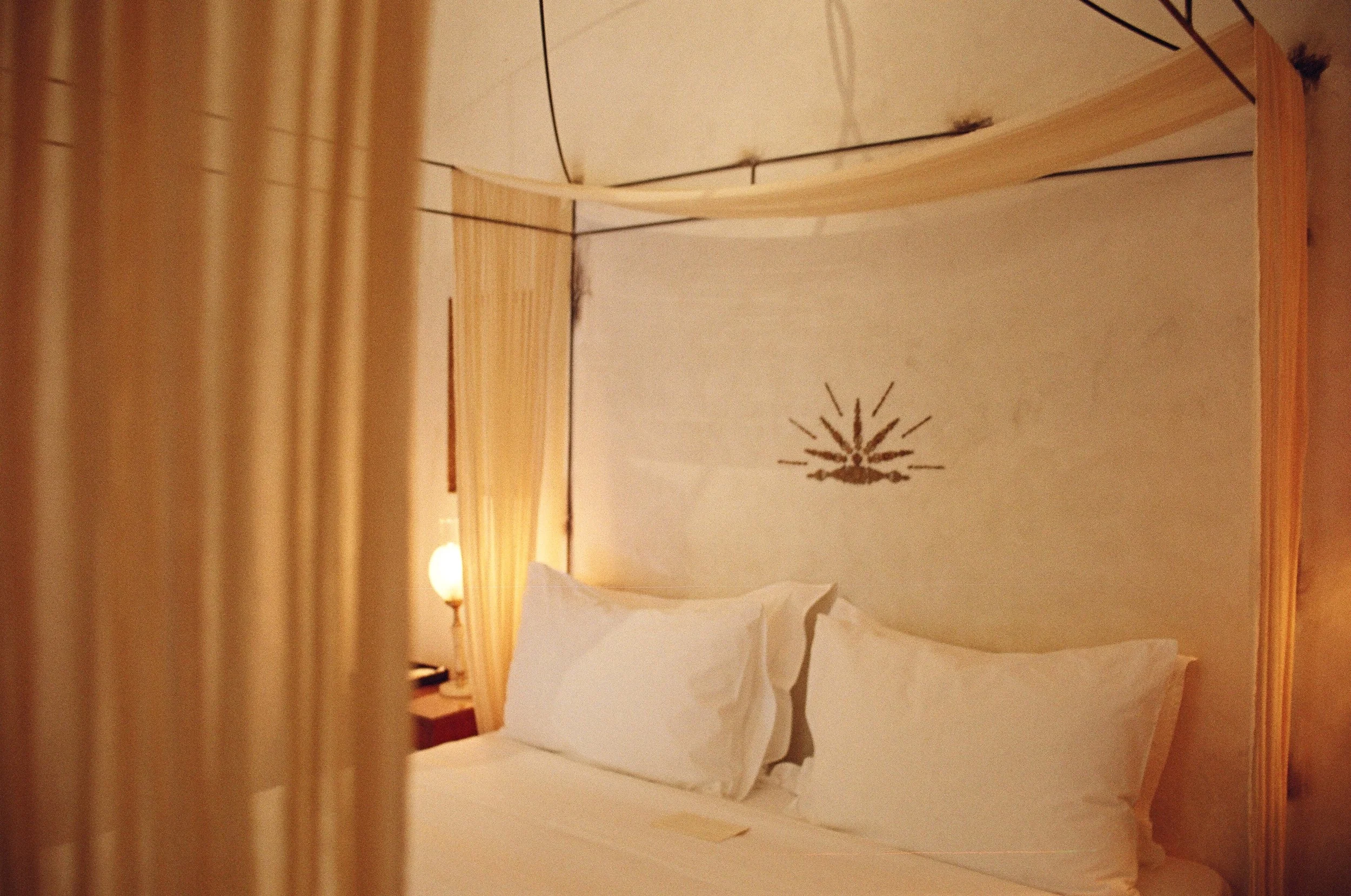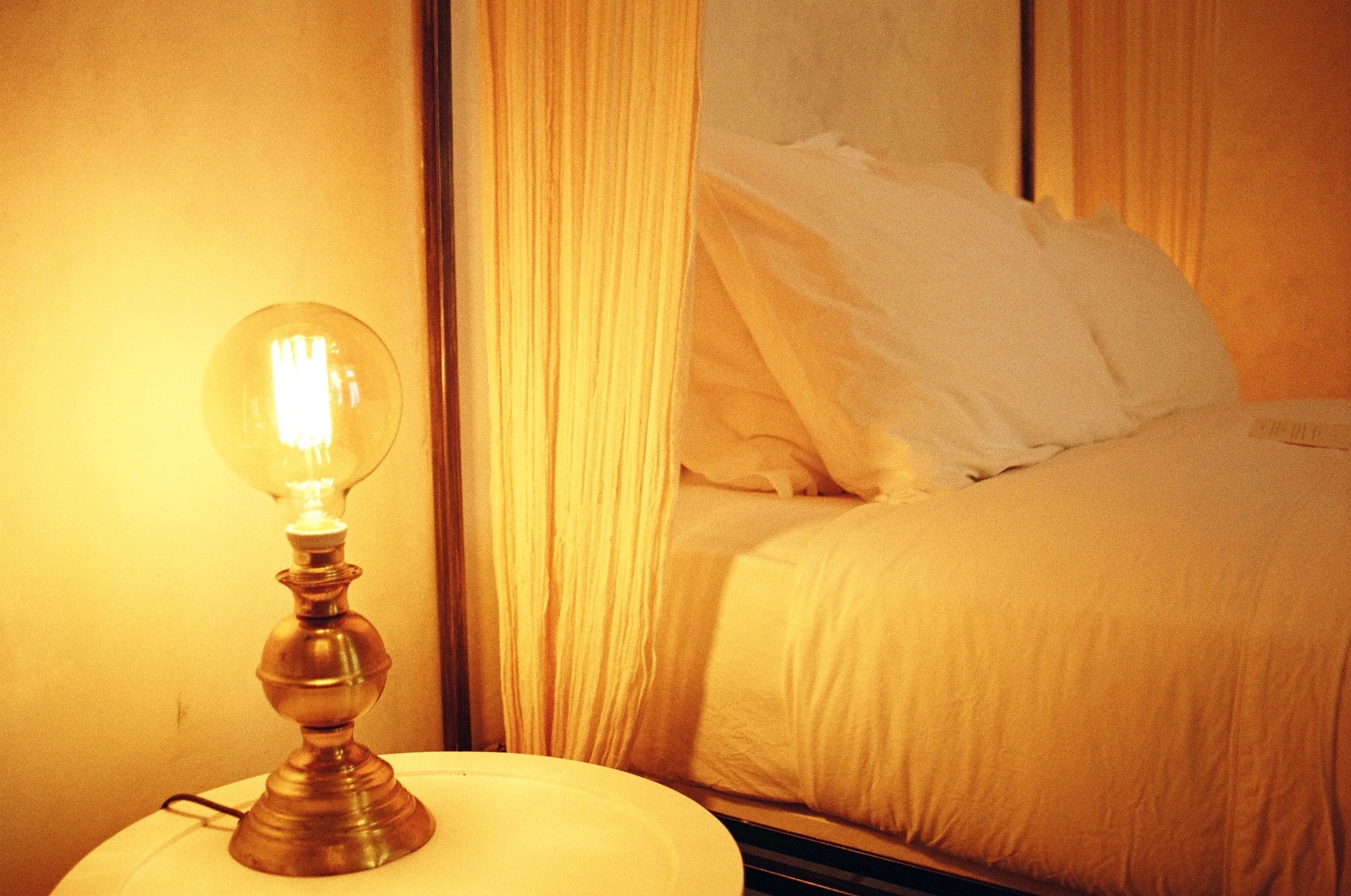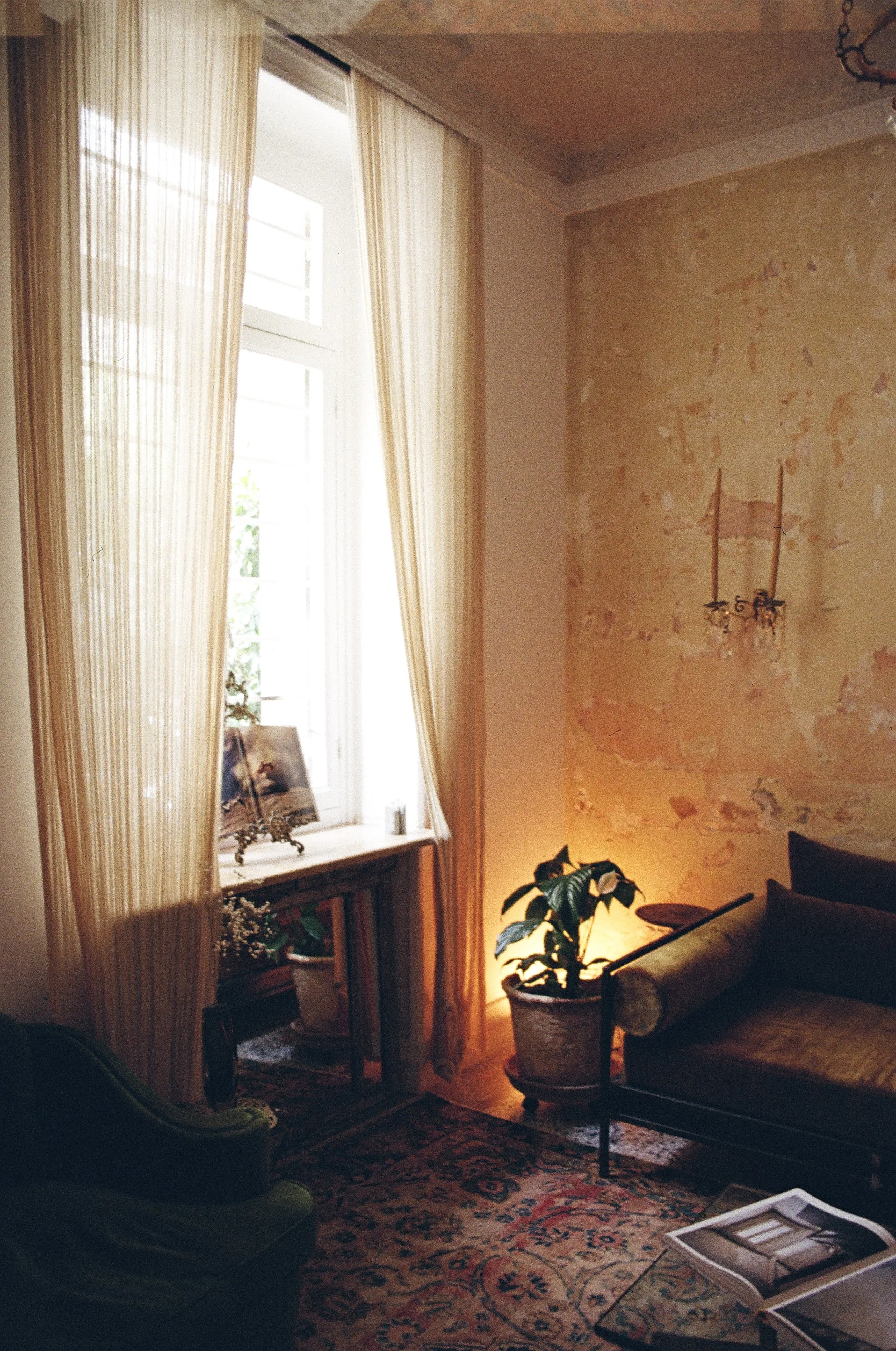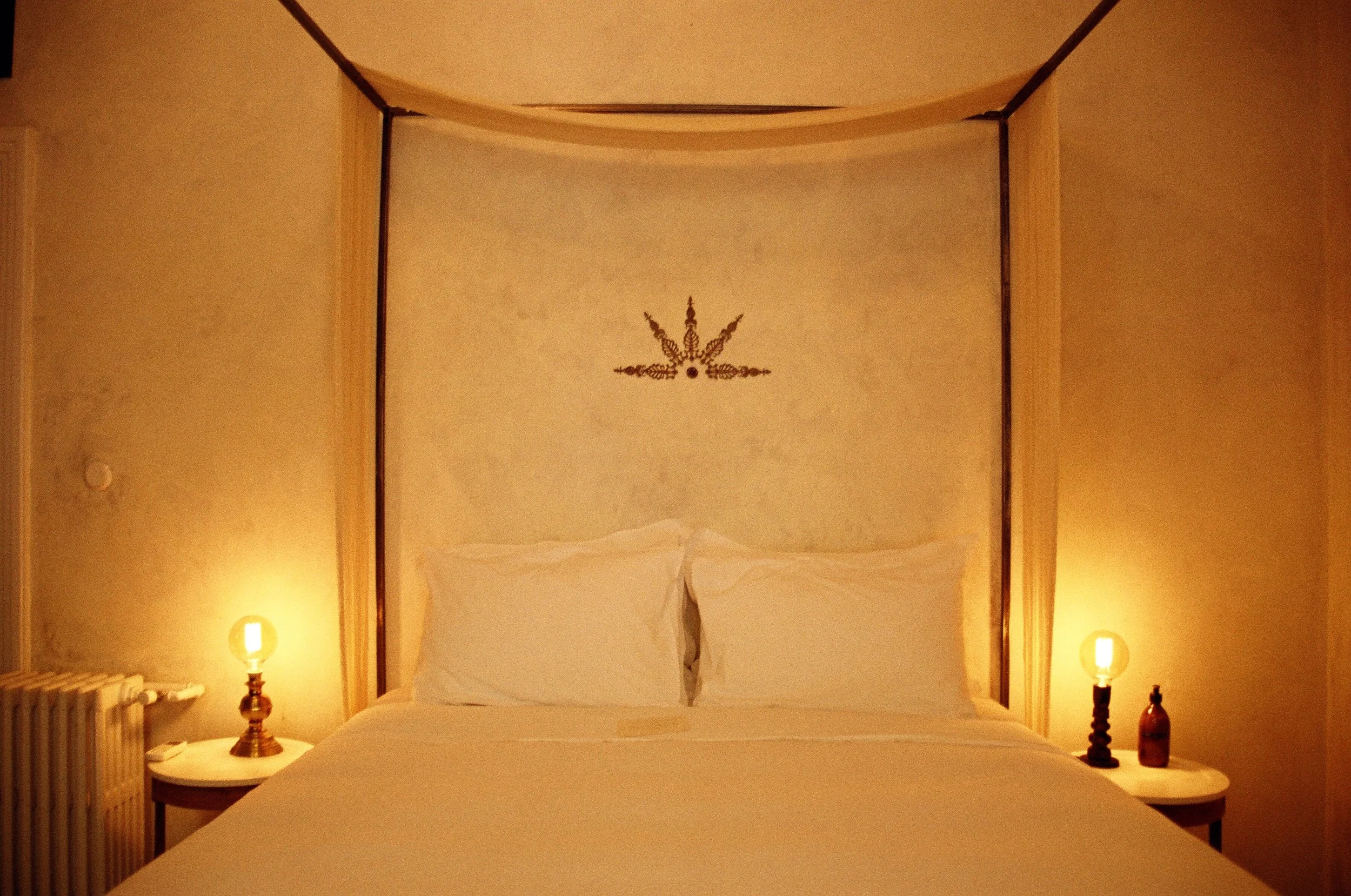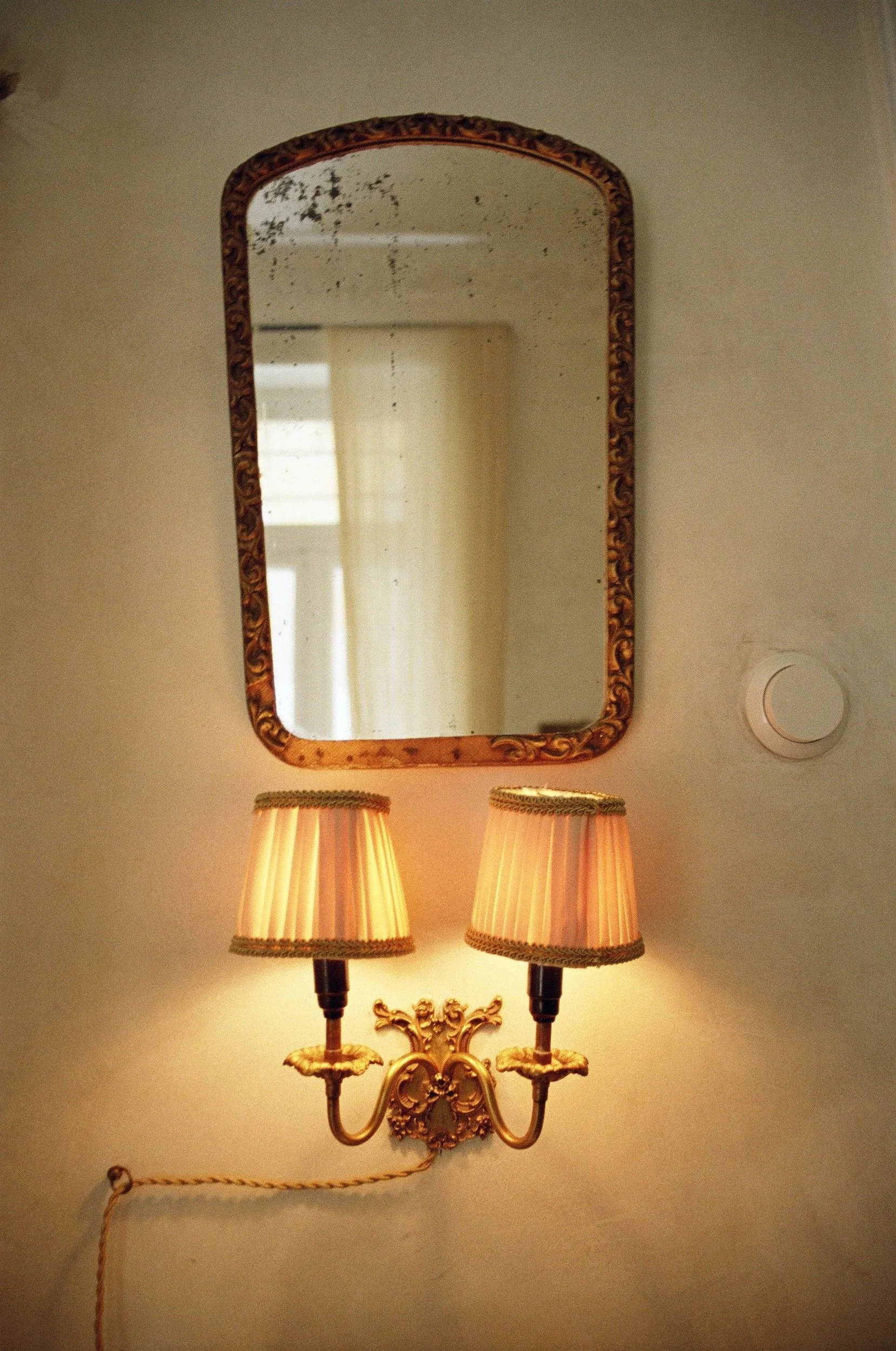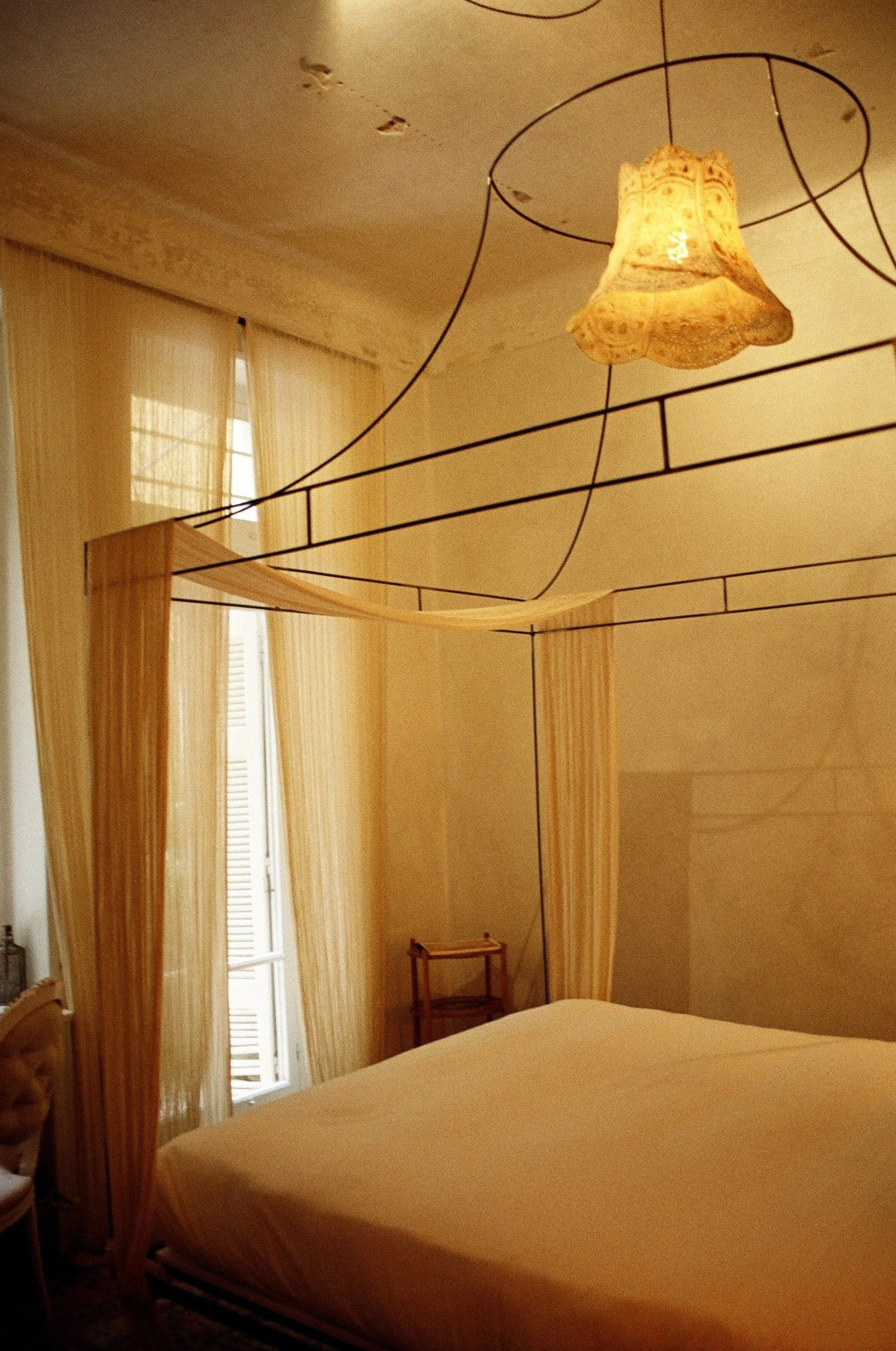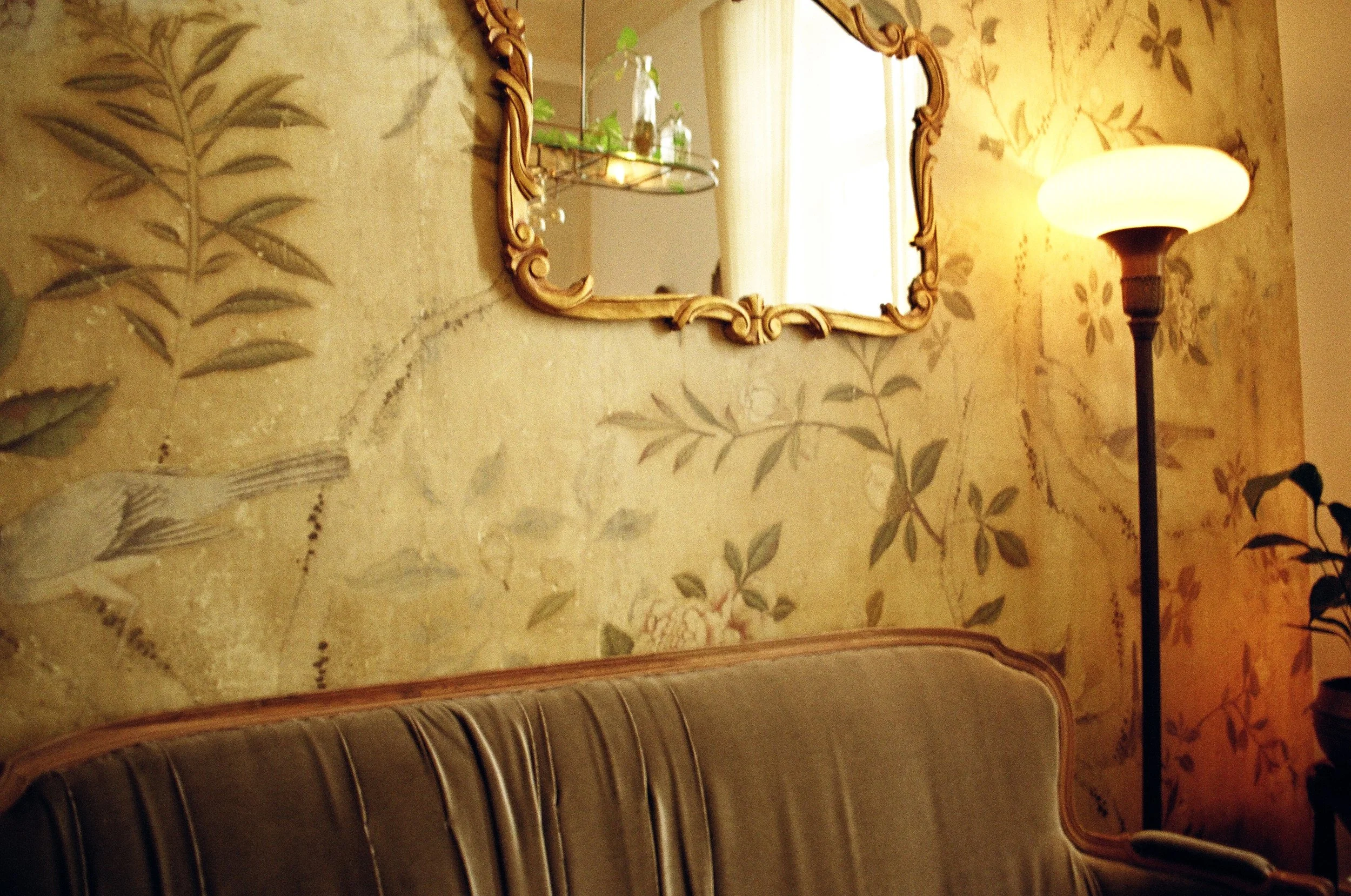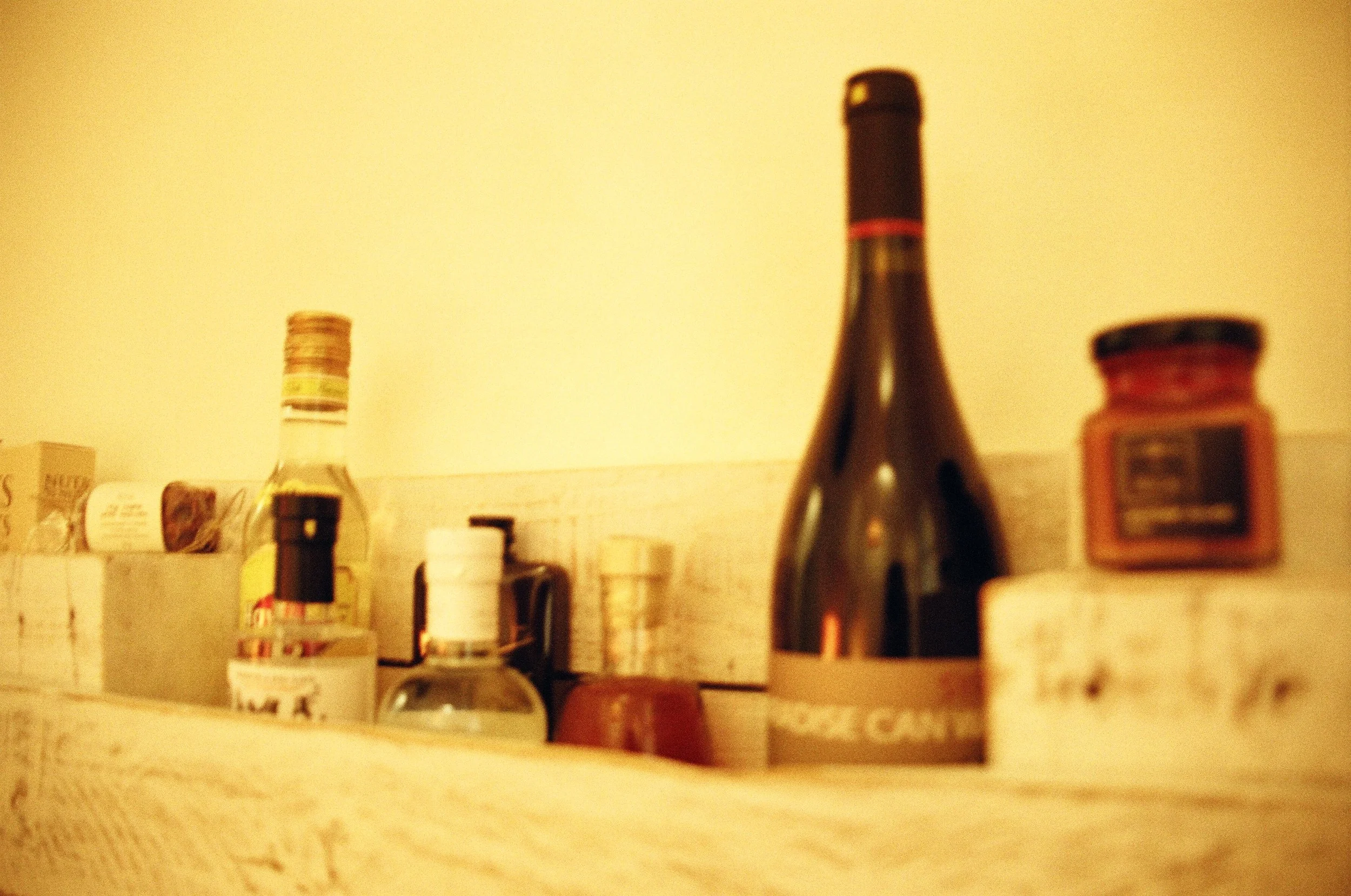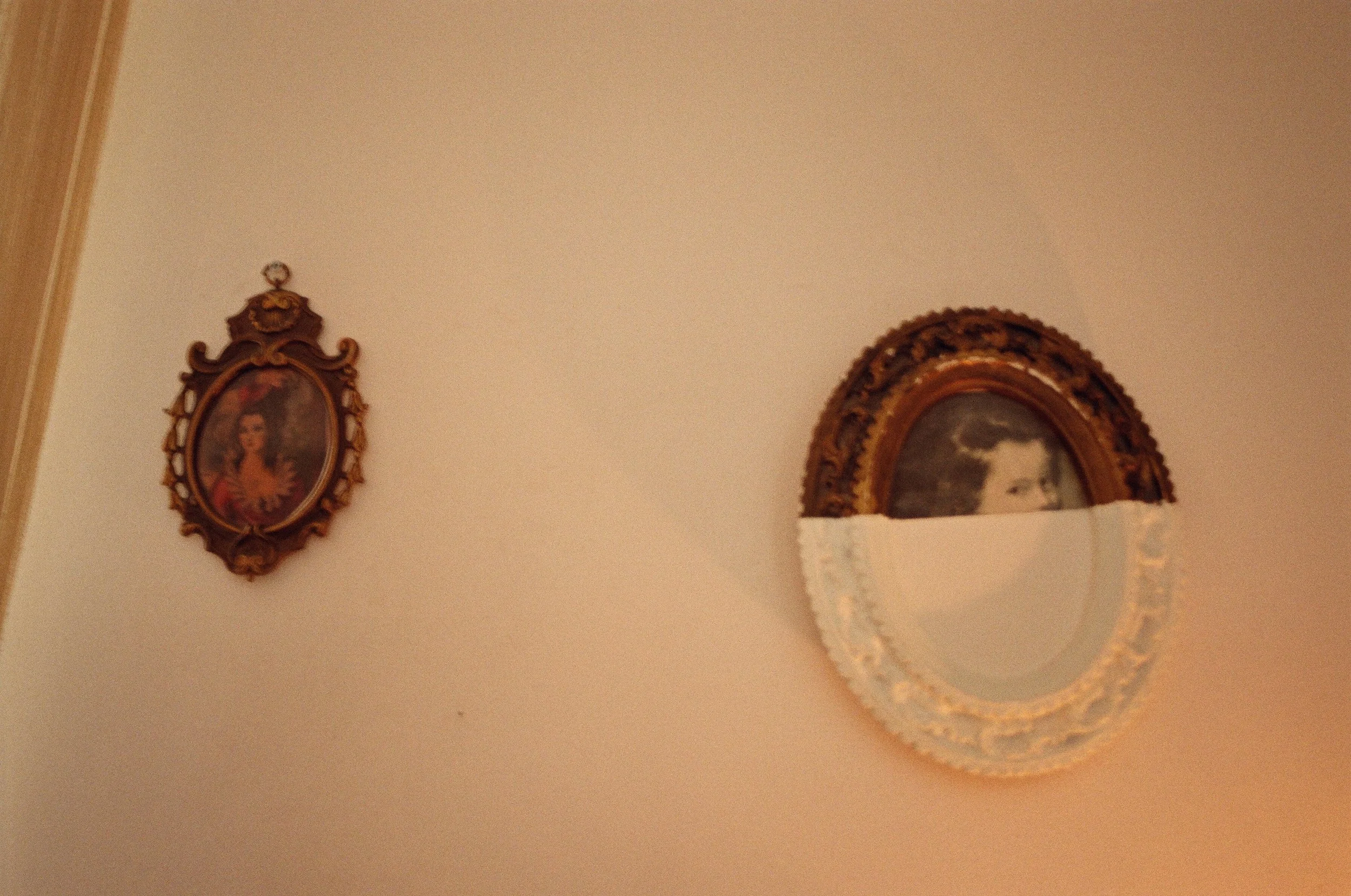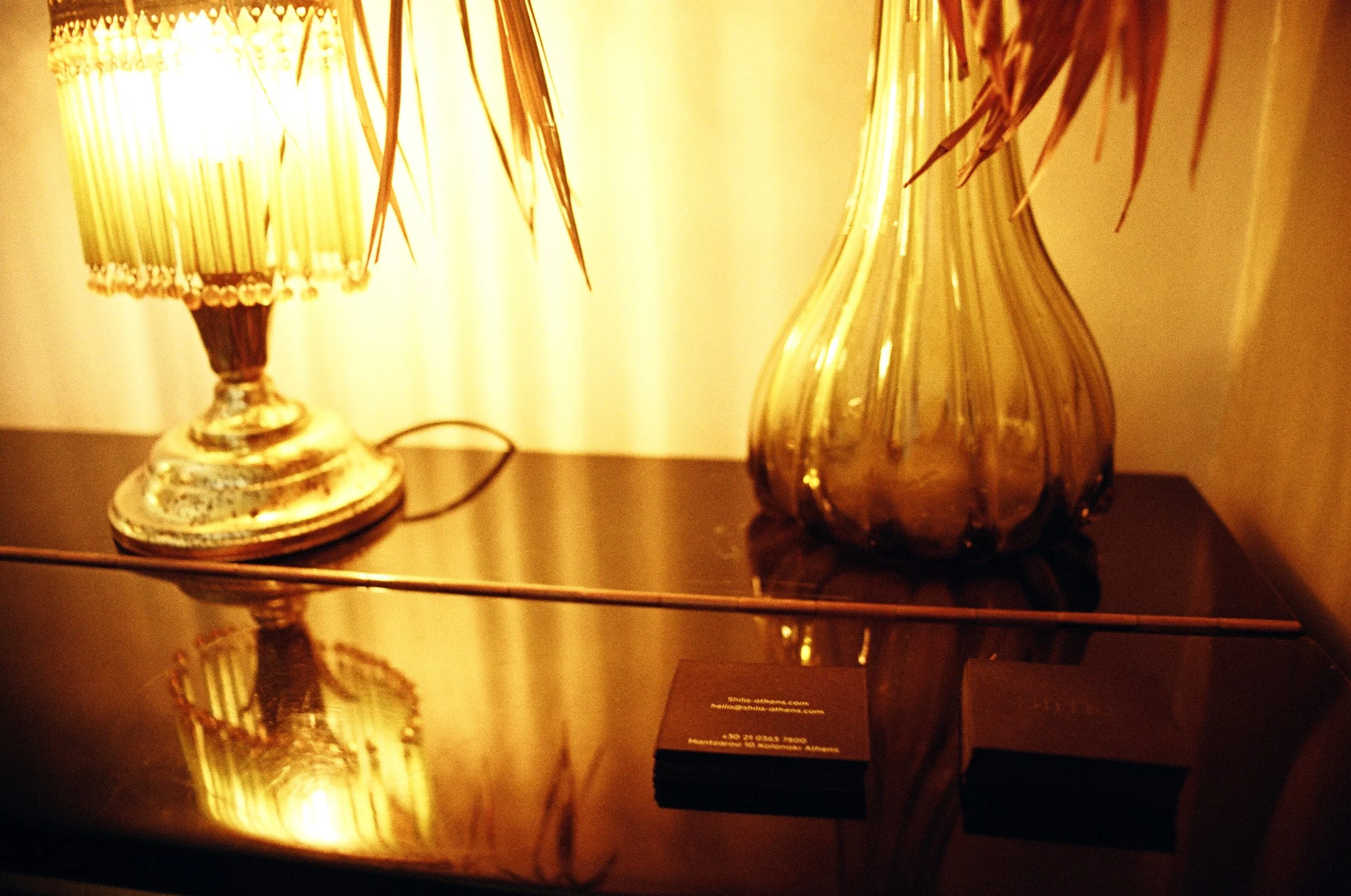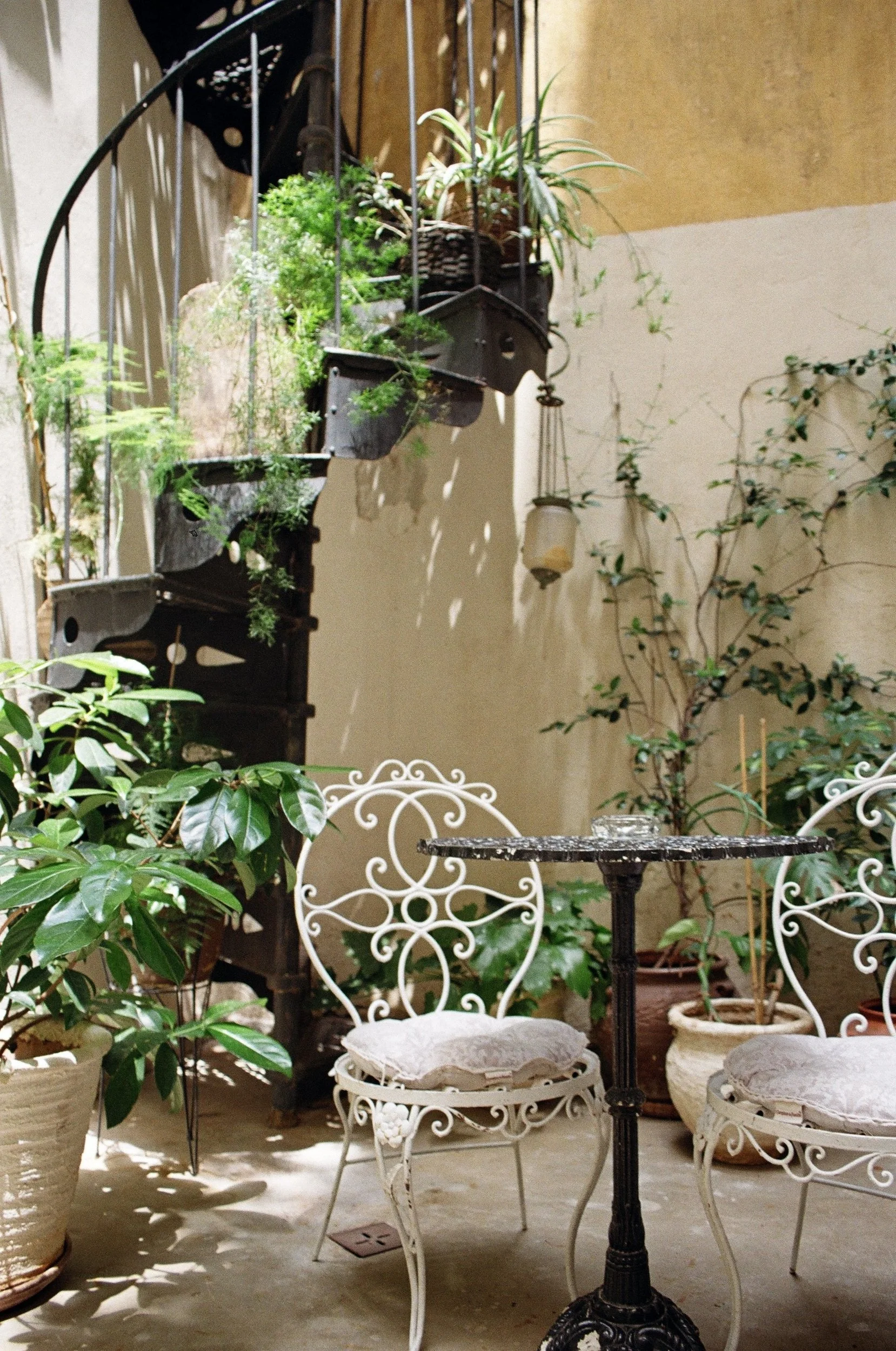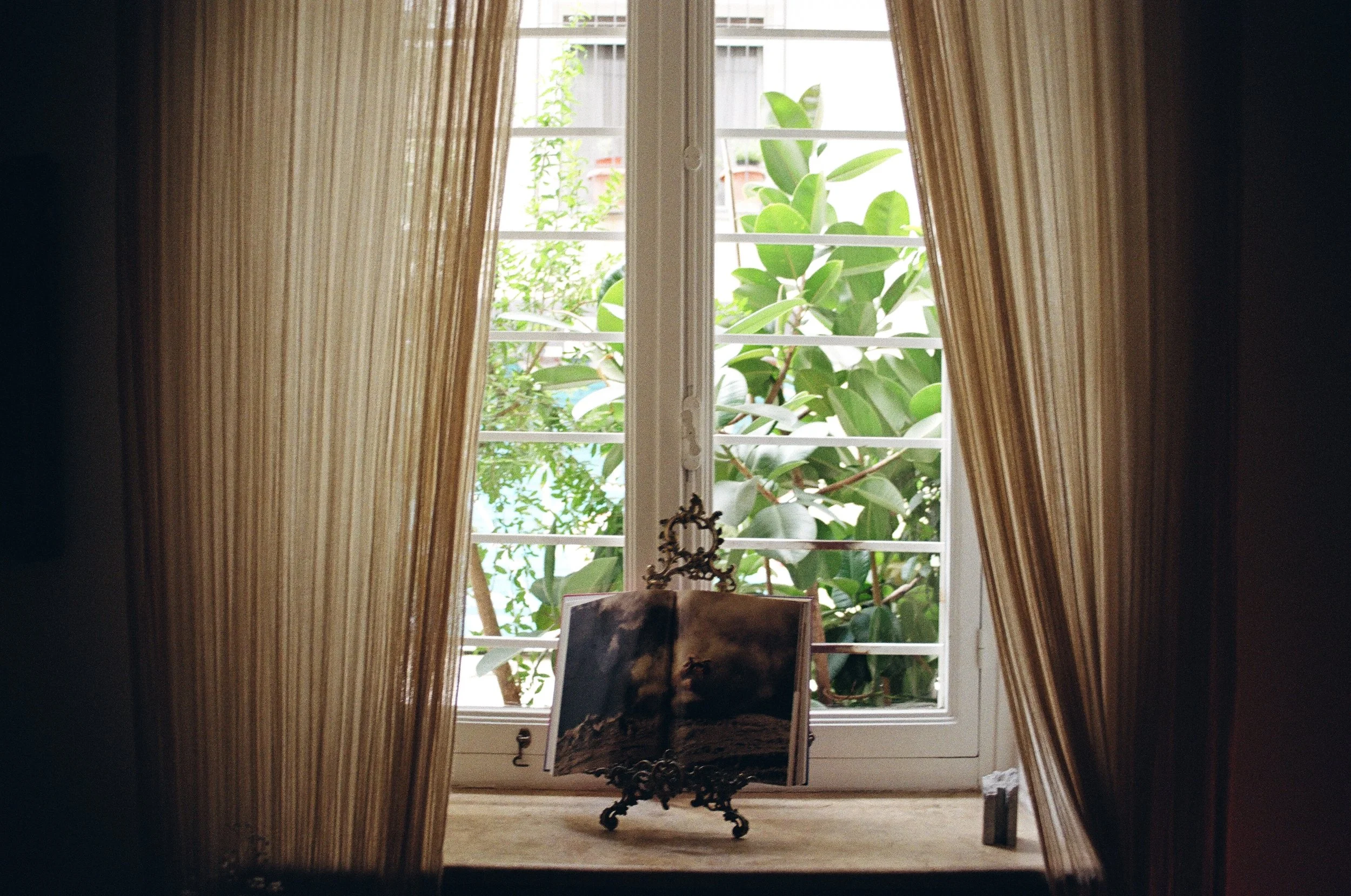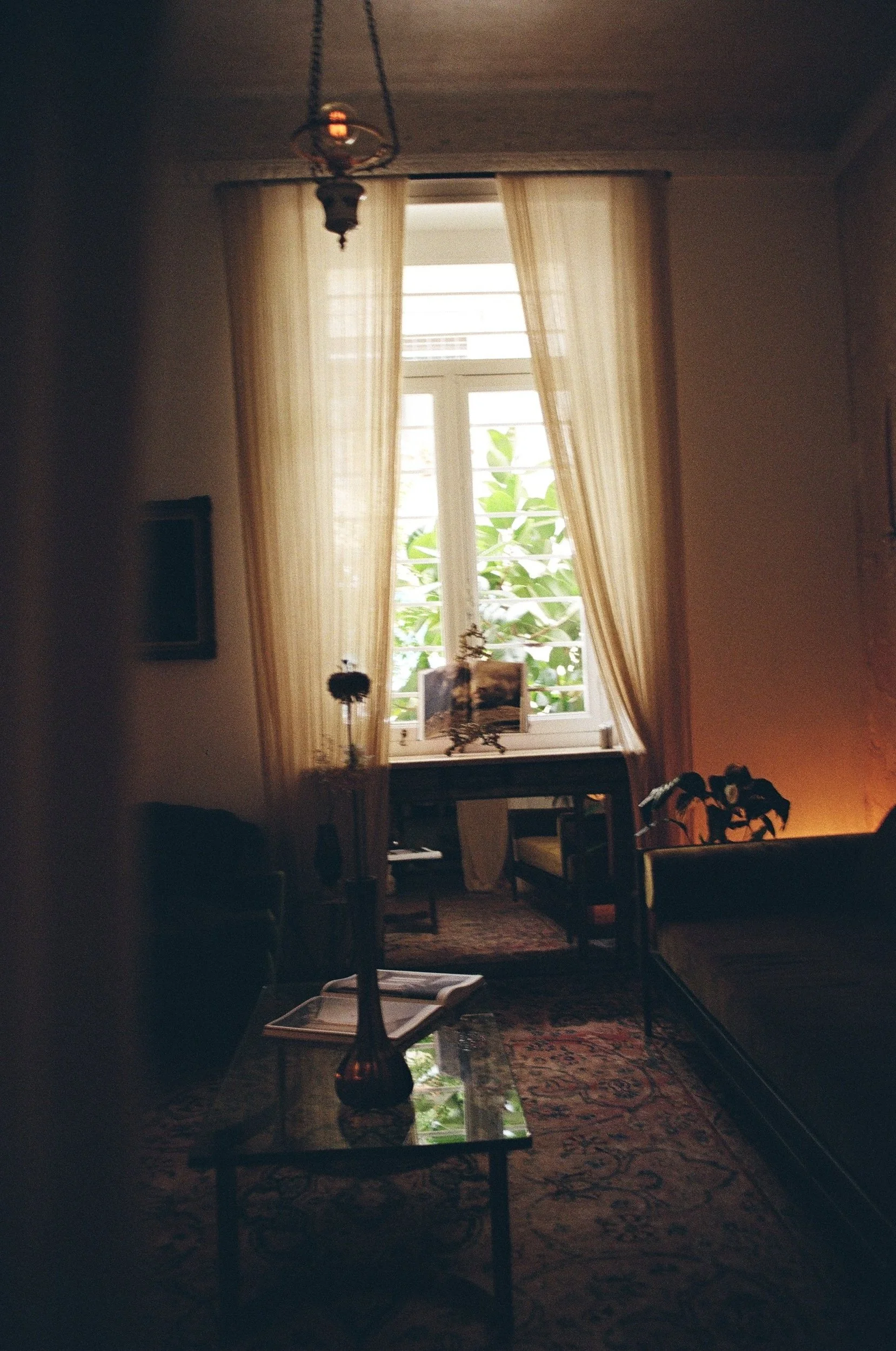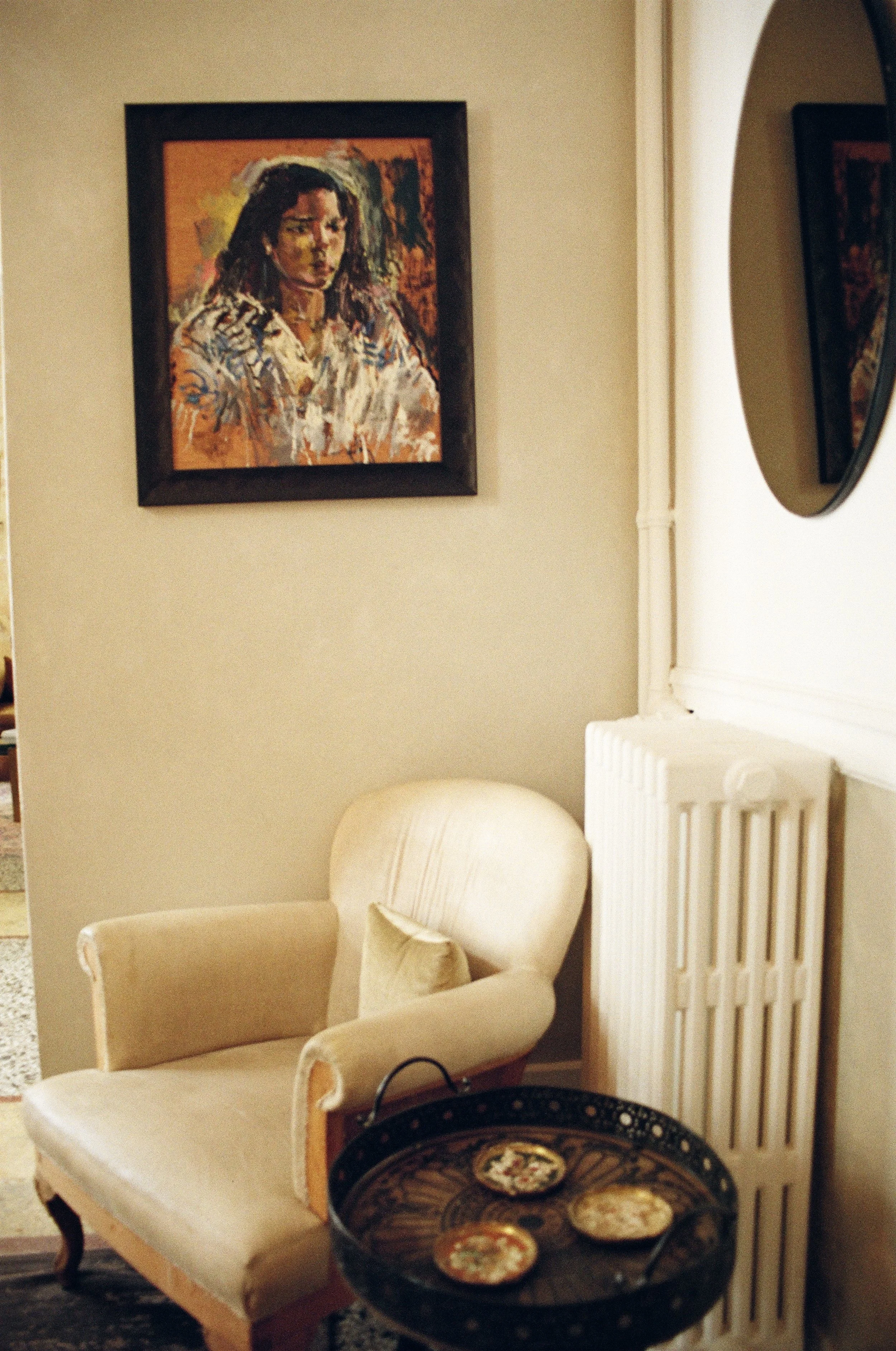in conversation with . . .
Yannis Lasonidis
Photo courtesy House of Shila
Yannis Iasonidis is the founder and owner of Orila, an independent record label based in the Mets neighbor- hood of Athens specializing in experimental music and producing unique, site-specific events.
His label has an ongoing working relationship with the graphic designers of Bend, with whom he collaborates on all release packaging, event fliers, and merch.
Keep in touch with Eftihia:
Instagram
@orilarecords
Website
www.orila.net
Orila Bandcamp
www.orilarecords.band-camp.com
Words by: Tina Iasonidis
Photos by: Tina Iasonidis, unless otherwise noted
Interview recorded:
In your own words, who are you, and what do you do?
Who am I? Well, that’s a very good question. I’m someone who was born in Athens and was raised in Manchester, and then I came back to Athens.
What do I do? The past couple of years I’ve been running Orila, which is a DIY project. I guess you could see it more as an art project, rather than a record label or event production. I wouldn’t call it a company; I would call it a project because it doesn’t have a profit-making aim. This is basically my vehicle for my own expression and for working with a number of people, albeit musicians, artists, videographers, or sculptors. It’s like a boat in the middle of the Aegean Sea. If the wind is blowing north, it’s gonna go north; if the wind is blowing south, it’s gonna go south. Whether or not the captain wants to, that’s a different thing.
If you asked me, “What do I do for a living?” I would say I do production for cultural events, and lately film sets.
How did you launch this career? How, if at all, did your studies lead you here?
They didn’t. I studied something completely different. I did human communications and person-centered psychology, and then I did a master’s in sociology. In a wider perspective, there is a connection to what I do, but practically and professionally speaking there isn’t.
Around the time when Athens was organizing the Olympic Games in 2004 I had just finished my second degree in the UK. The first job that I got when I got back here was working for Virgin, like Richard Branson’s Virgin. I had this incentive with music and arts from living in England for seven years. It was a lot easier to get a job in Virgin than go after a career in counseling or psychology or anything related to what I studied.
Then I went on to some cultural venues to some event spaces, organizing mainly gigs and some mini festivals. Then I went to cinema, doing a big production for the Athens Film Festival.
I wouldn’t say I forgot about what I studied. It’s always inside me, this way of thinking and kind of analyzing everything that you see around you. But this is more of a personal thing. I don’t think it has to do with what you studied; it has to do with the way you think. Your mentality leads you to what you study or what you go after in your life.
At that time I think I was pretty happy with the choice of working with artists, musicians, people like that. I don’t know if it was the right choice, or if it still is. I still see myself as a student of life trying to learn from other people and trying to make myself feel like a better human being every single day.
What first drew you to music, performing, and coordinating these live events?
It’s the purest form of expression if it has to do with music. Live music for me is probably the most direct and honest and precious form of musical expression.
The label was a bit different because it was about documenting the local Greek experimental-music scene. The sense and the drive to work for music, live events, and production was basically because that’s what I enjoy seeing in forms of artistic expression.
You grew up in Athens, but went to the UK for university. How did this shape you?
Well, it fucked up everything. It changed my life, actually. Not Britain, but Manchester was like a shot to the head back then. I was really young. I was lucky because I left Greece when I was seventeen. I finished high school and in a month I was in Manchester. I arrived the same day that Princess Diana died. So it was kind of weird. I didn’t know where I was, or what was I going to do, and everybody was onto this weird assassination, or whatever that was.
At the time, Manchester was a city where everything was revolving around music. I wouldn’t say it was in a downfall, but the Haçienda and the Manchester days were over. But there were still people coming to the city for its past, and the fact that dance music and the music industry were evolving from Manchester. Although I didn’t choose Manchester for this reason, it kind of hit me straight. And I embraced it.
Music was everywhere in Manchester, so every night you would go out you’d listen to new bands, new DJs. Collabing was very big, it was accessible, it was open. For me, it was very interesting because I got to meet all these people from all those different parts of the planet.
After living and growing up in a place like Athens, you would find yourself in a metropolis where your group of friends would be from all around the world, something which is the norm for New York, but not at the time for Athens. You wouldn’t really see anybody walking down the street who would be Black or more white than you, or anyone who would speak another language other than Greek. Now you do.
What is the design and creative-community scene in Athens like now?
What is Greece well known for? What does it have to export? It has to export this ancient culture, which everybody comes here to see and talk about. So we have a vast amount of history, maybe too much, that people know us for, and we’re kind of striving to find our modern identity in contrast to the past, because the past is so bright, and the present is, I don’t know if I could say dim, but it’s certainly not even as shiny as the past was. Ever since Documenta came over, we’ve had an uprise of pop-up galleries and art spaces with younger people who are mostly European and seem to find it very interesting to leave their hometown in France, Germany, and Holland.
They come here, they rent a small apartment, and they rent the small space to put out their art. This is something very common these days in Athens. So the art scene is also evolving, and quite strong. I wouldn’t say the same for the rest of Greece, but especially for Athens it is one of those aspects.
Do you find that the change is welcomed?
Well, artisticwise, of course it is. But it comes with a price. It’s no secret that the price of rent in Athens has tripled in the past ten years. So it’s not as if it’s a bad thing if you’re working from Athens and getting your salary in French terms and then you’re spending in Athens. But not everything is black and white. I think in artistic terms, it’s very welcomed.
What’s the story of Orila? How do you see it as fitting into this creative ecosystem that now exists in Athens? And how did you bring it to life?
It doesn’t. It doesn’t fit.
[Laughs] I mean there must have been a void, which is why you wanted to create something like that!
At the time Orila was created there was a very strong experimental-music scene which doesn’t really exist anymore. Athens went through a period where small music venues vanished. This is a little bit before the pop-up galleries and the art scene began flourishing. I’m talking about the period around 2010 until 2015. Up until now, this is still the case.
When you look at music venues, there are not that many small ones, where experimental music can evolve. There’s clubs. But there is not a small kernel of people and venues where things boil. So, at the time, it made a lot of sense to get all those people who were making music together and have them express themselves through a vehicle which was Orila.
Nowadays, it’s a sparse activation project, where a number of people will get together, talk about something, and then we organize. It’s not as if we’re going to throw a party every weekend and invite an artist or a DJ to come and play. This is not what we do with this project. We like to take our time and see if there is something interesting that we want to do.
Every time we do something, we try to focus on the location, rather than focusing on the artist themselves. Making a great party at an established venue is not what we want to do. We want to find interesting places, interesting spaces where we can set up something with our own budget, and our own force, our own ideas and people. It’s based on the energy of the people involved. It’s like being in a sailing boat. Some people are bored by sailing, but they want the ride. Some people are good at the mechanics of it. Some people just want to cook. My role is to find the right people to work together and help organize this crew so that the boat can travel.
And not capsize.
Ah, well, it’s very easy to capsize.
But every few months, there’s some great idea that comes and we seem to release an artist or do an event.
It started out mostly as a record label where we would make releases with our own hands and try and do the DIY packaging every time with new materials. Through the course of these last thirteen years, it evolved as an events-production project rather than musical items.
Living room style lobby
What is it like to run an independent record label and events-production company?
It’s a lot of fun. But it’s also a lot of pain.
Right now, this project is not anywhere close to a professional project. Profit is not our priority. I don’t pay any money for promotion. Not because I don’t want to, but because I don’t have the amount of money to pay for promotion that other people do. I fully respect that, but this is not something that I could do.
It’s an old model of doing what you really want to do with the people you want to do it with and hoping that quite a few people around you are going to listen to this and find it interesting. It’s not hard. It’s not as if you’re doing it and you’re sweating and that sweat isn’t worth it. With the state of the music industry today, it’s a very different thing to what it used to be. I do think Athens makes a difference because a lot of artists are from around here. If we were in Paris, or Utrecht, or Berlin, or anywhere else, it would be a lot different.
One thing to keep in mind is that most of the people who were running projects like this a few years ago don’t anymore. There’s no such a thing as a small record label as it used to be, because there’s no such thing as CD or cassette culture anymore. We listen to music in front of our screens or mobile phones, so the meaning of a label has changed to a different thing.
Your medium is music, but you understand the importance of graphics and branding. What has been the journey of creating a visual identity for Orila through your collaborations on collateral and merch with the graphic designers that you know?
The last ten years, we’ve had this collaboration with Bend graphic design. This is a team of a couple of guys that I knew, and I admired their work. I asked them to design a few releases for us, and ever since, they are responsible for what we do and the way it looks.
In the beginning, it was like an art lesson at school, where we would sit and make them with our own hands. After that, when Bend came in, its more, “Let’s sit together, listen to the work, and try and think how this would be interesting as a process to design something.”
Our next release is a guy from the UK called Sockethead. He made the music and he made the artwork, and Bend designed the way it’s organized on the record. We did this a couple of times in the past, where the musician provided some sort of drawing for the sound, but this is not common.
Most of the time we just sit and think and argue what would be the right way to express this in visual terms. It’s not as if we have to report to someone besides the artists. Of course, we get their approval of things, but ninety-nine percent they approve of what we have come up with. The process is very exciting, and it’s something that takes a lot of time. That’s why we usually spend ten times the amount of time we would for a release when we sit with the designers of Bend. That’s one of the bad sides of a DIY project, where there is no specific deadline, and even if there is, nobody gives a fuck about it.
How do you coordinate the site-specific events and shows that you do?
I cannot invest in an idea without thinking about the specific location―it’s going to make things special or not. It’s not as much fun when you bring a few people together and just throw them in a venue where they could play music and the sound is perfect. This is not what we want to do. We want to find interesting spaces.
For example, the most interesting and important event that we’ve done for the project over these years was an exhibition set up at my grandmother’s house when she died. She lived until she was 102.
Whoa.
She had lived in her apartment for the last thirty years in Nea Smyrni, where I grew up also.
In the course of me going back to her apartment and looking around through all the stuff that one person has after living all their life, and having all their life packed in there, I found these amazing boxes where she would keep the notes that she had with my grandfather, who died in 1995. There were all these notes that they would exchange before they became partners, before they became a couple, and all those personal and family pictures that she had from the ’70s until the last couple of years where film was still a tangible object, not digital.
I gathered a couple of friends and we said, “Why don’t we try and do an exhibition of what we have found inside the apartment, and try and find the connection between the photographs, her belongings, even the furniture, and the stories that she has written, and exhibit them inside the house and invite people to see how a person who has lived their whole life and have it exhibited in their own house before it’s sold?” This was the basic idea.
We managed to do the exhibition for a weekend, and it was probably the most important thing that we’ve managed to do as a team because we knew that there was a specific deadline. We knew the apartment was going to be sold, so we had a few months to organize ourselves.
At the end of the day, we managed to make an event which was unlike any other one that we had done, and all the friends and people that we gathered together on that weekend came into this thing which was very, very special. This was probably the high point of what we have managed to do until now. It’s not as if we were sitting there for years thinking, “Okay, well, Yannis’s grandmother is going to die at some point. So what are we going to do? We’re going to take all her personal belongings and exhibit them to a bunch of people who she doesn’t even know. And make this talk-of-the-town thing.” No, it was just one of those things where life kind of made you pass through a thing and think, “Wow, that’s an amazing opportunity to do something great.” And that’s how it happened.
Inside the suites.
With the loss of live performances during the pandemic, how did your business respond to and evolve with the situation as it changed?
Well, if it was a money-making business, I would be totally fucked, I would be destroyed.
[Laughs]
Yeah, it isn’t. I was lucky enough to focus inwards, try and work on a couple of releases, and wait until this thing is over and be able to present them live again.
What was it like when things started opening back up again? Have you started having these events more?
We’ve only had one event since we reopened again in Greece. That was May 2021, which was the presentation of our latest release by Kostis Kilymis, who calls himself Bethnal Greener.
We presented his tape in a friend’s flower shop in Athens. I always thought, “How nice would it be to have somebody performing in a place where trees and pots and dirt is alive.” We managed to do it with this guy.
It was the very beginning of when people would still wear a mask but they would be able to see somebody perform inside the flower shop as they would be sitting outside. We worked with Kostis and made more of a performance rather than a concert for this, and it worked really well at the end. It was a very good night.
Are there any places you have in mind that you’re just hoping to find the right thing to perform there? Any favorite past performances?
Yeah, a few. But I have to tell you, it’s very, very difficult in Greece to convince people to allow you to do something.
We did one very small concert which was filmed in a cave in southern Athens. Around 2010, we did this project called Vounorila where we went on top of a mountain in Evia island and had six acts travel with us. They didn’t know where they were going. We just told them to bring all their instruments and a power generator and we would set up everything for no particular reason on top of a small hill and we would film it―and so we did.
What has been the reception of your programming over these thirteen years?
The reception is not always the same. We have a small amount of people which are always there. Experimental music doesn’t have a big audience either way. I don’t expect people to embrace this just from one day to another. I think we’re quite satisfied with the amount of reception that we have in events.
We release stuff in very, very small runs. If you’re releasing two hundred records or sixty tapes, you’re going to find some people who are going to purchase them, eventually, at some point.
Do you do find that most people are local and in the Athens music scene? Or do you meet people when you’re playing at festivals and other places?
The audience is mostly Greek, but it’s international as well. When I travel and go to other festivals, you get people who see what you’ve done, and when they spend enough time to listen to the stuff they recognize it.
For me, what’s important is that we find the way to express the artistic dream that each one of these artists has. I don’t measure the success of a particular project from sales. I measure it from whether or not the artist is happy at the end of the day, from what we’ve done.
There could be fifty people in a live concert or there could be five hundred people. It doesn’t necessarily mean that the five hundred would be better than the fifty. Sales for records are not going to be anywhere near what they used to be in the past because we don’t have as many listeners as we used to, but with events, it’s a different process and a different thing.
Details in the living room lobby
“athens at the moment is experiencing a very high demand. THere’s a lot of artists that now are moving here, and it is really a great moment to have all these different minds and cultures coming to greece as well as experiencing.”
Above: Carefully sources snack-and-beverage options in the suites
Below: Parts of the rotating Shila art and object collection
What’s the biggest challenge to running this type of business?
It’s not a business. [Laughs]
Company! Venture! It is a business even if it’s not your full-time business!
Okay, let’s call it a business where you lose money. [Laughs]
Is the biggest challenge earning money? Or is there something else?
The hardest part is to keep it running.
It’s not only about finances. It’s a team thing. It’s a dynamic thing. And the most difficult part is to keep people motivated so that they keep on producing and they believe in what they do. I guess this is the hardest part and the most interesting part―to find really interesting people who you can collaborate with and trust.
What’s next with your business?
We have a couple of releases coming up. One, just around the corner for Kostadis. And the latest one, as I said, is from Sockethead, this friend of mine who was in Uganda for Nyege Nyege Festival doing a residency.
What are your sources of inspiration, and how do you get out of a creative rut?
I don’t know how to get out of a creative rut. I get people like you telling me to do an interview about this so I can refresh my memory about what I wanted to do. [Laughs]
People are a source of inspiration, and the happiness that you get or the sorrow that you get from seeing somebody performing in a place where a lot of people congregate.
That’s a good answer.
It’s a very special moment where people congregate to experience somebody performing.
It’s a very, very precious feeling. And one that it not always cherished. It’s very easy to find made-up events where people just go to get fucked off their heads and dance, which is fine. But . . . sometimes we have to think about the next level. I’m not saying that I do . . . I’m just saying this is part of the aim of doing what I do.
You know, you can take magic mushrooms and go for a field walk and come back and write an amazing record, or you can get hammered on ecstasy and cocaine and have a beautiful night, listening to a great DJ. They’re not contrary to each other.
It’s a very special feeling when people come together for a reason like this. It needs a lot of work from both the person who’s setting it up and from the person who is coming over to visit and see what it is you’ve done. It’s like making a meal. If you asked me to come over and you’re going to cook for me, you’re going to cook something which is made with love and I have to come here and . . .
I like the stuff in your living room a lot, like the Cycladic print and your shelves.
The Cycladic print is also Viktor Gogas’s art. The rest of the stuff is mostly friends’ stuff. The Cycladic icon and a painting that I have on the hall is a friend’s. And then I have this big, wide photograph in the bedroom.
Maybe I’ll have to move away soon from that apartment. You don’t know what the next place is going to be like. It may be awful.
Or all frogs.
No, no, no more frogs, please.
Best place to get a housewarming gift or a good souvenir for someone in Athens?
My first thought would be a plant, and my second thought would be my friends from Paraphernalia who have all these hip, nice items.
It could also be a record. Or! It could be a record player if they’re moving in a new apartment and they don’t have one and I know they like music.
What are the vintage sellers, concept stores, and designers in Athens that you think people should know about?
If I wanted to be truthful about what you asked, I would say, a true vintage garbage monger . . . collector . . . would go to the local fair which is happening every Sunday a little bit outside of Athens.
This is somewhere where you could spend the whole day and find nothing interesting. You would really have to dig and have your hands dirty to find something that might be of interest. This is your spot if you were really, really looking to find something that would be beautiful and unacknowledged from many people.
Come hungry.
Yeah, come hungry. And bring a bottle of wine. I can’t come empty-handed, having no manners, and drinking everybody else’s booze.
Good analogy.
Yeah [laughs], yeah, I don’t know! I don’t know! I don’t know. Another source of inspiration is Bill Hicks. There! You can quote me on that! [Laughs]
You have an eclectic apartment. How would you describe your style and taste?
My apartment is eclectic? Dope and eclectic?
Yeah, for real. I’m thinking about that puppet in your window.
That puppet in my window is a present from a friend of mine, an artist. That puppet has bee with me for many years. I’m surprised that you like that puppet . . . It’s like a weird fucked-up thing where you don’t know if it’s horny or if it’s ill, if it’s sick . . .
I’m gonna tell you a story about my apartment. Okay?
I think this story is good because it can answer your question in just one go.
One of the most successful releases on the label is this LP with recordings of frogs. The recordings came from a trip in Thailand and Laos.
It was raining in Koh Samui, one of the islands. When the rain stopped, we could hear this very big sound coming from everywhere. It doesn’t sound like any sort of frog you’ve ever experienced. Not in Romania, not Greece, not in the States, not in fucking Elon Musk’s head.
We had a recorder and said, “Okay, let’s go and find what it is.” These Thai guys managed to trick us and said, “It’s buffaloes.” “Buffaloes? In the middle of Thailand?” So we started walking up the hill, at nighttime, thinking, “Wow, these buffalos are everywhere . . . how can we hear them and not see them?” We ended up at the entrance of this small hotel. We asked a security guy, “Where are the buffaloes?” He said, “These are not buffaloes, these are frogs, guys.” Fuck . . . they tricked us.
When we came back to Greece, we were listening to the recordings, and we made the recording pressed on a record, and people seemed to really like that release. It sold out, and they all wanted to have frog recordings. Apparently, there is this niche of people, sound people, and music people who are into frogs.
Because this was so successful, most of my friends at the time started regarding me as a frog. They were calling me “Frog,” they were bringing me paraphernalia that was related to frogs―records, suits with frog heads, frog shampoo, and little frogs from wherever. For a period of time, my apartment was full of frog paraphernalia. I had too many . . . But it was fun.
At that time, I was renting my apartment on Airbnb because I was traveling. I still remember this Italian couple who stayed for a few days. Before they left, they said, “Thank you very much. You know, we really liked your apartment. It was amazing. We had a really good time in Athens, but there is one question that we have.” And I was like, “Oof . . . something went wrong. What is it that they’re gonna ask?” And they said, “What’s with all these frogs in your apartment!?” Ah fuck, where do I start!? How can I explain this? I mean these guys would think, “This guy is like a scientist or some kind of weirdo with frogs.”
I guess there are parts in that very small flat which are interesting, but I don’t have any sort of incentive to make it look like a design apartment.
Details in the living room lobby
The lobby of Shila

